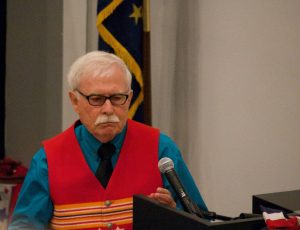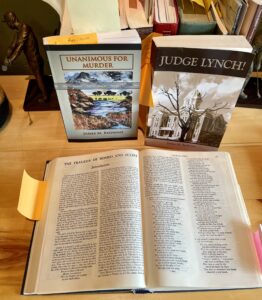Former United States President Donald Trump was indicted by a federal grand jury June 8, 2023 in Florida. Trump is entitled to have the charges tried by a jury selected from the state of Florida. CNN and MSNBC are complaining that the prosecution, the federal government, cannot receive a fair trial in Florida, especially before U.S. District Judge Aileen Cannon who is currently assigned to try Trump’s case. Cannon was appointed by President Trump, which is just fine with FOX News.
One way to assuage the fears of some cable news anchors is for Special Prosecutor Jack Smith to have Trump indicted by a grand jury in New Jersey or perhaps Washington, D.C. Trump possessed government documents in both places, both as president and former president. Either jurisdiction would eliminate Judge Cannon and, theoretically, provide a jury pool more favorable to the government and more anti-Trump.
Of course, the appointed judge concern could be remedied by enacting my repeated recommendations for all federal judges to have term limits and to be chosen in fair and free elections. Alas, those pleas have so far been drowned out by the cacophony from the mis-named merit-selection voices. Therefore, we will currently have to deal with our highly political and extremely anti-democratic system of having our federal judges chosen in smoke-filled rooms and the oval office. So, let’s stick with the jury selection issues for Mr. Trump’s case or possibly cases if Jack Smith decides to hedge his bets and bring charges in more government friendly climes than Florida.
To me, our fears should be of potentially fatal damage to our democracy from a country that may have lost sight of how critical public faith in our legal system is. We know there is already great cynicism about our executive and legislative branches. Our constitutional three-branch balancing act relies on faith that when the Presidency and Congress ooze near the abyss, a public belief in a fair, just and independent judicial branch can keep us from teetering over.
One of America’s earliest jury trials illustrates how this fragile system should work. In the 1730’s when we were still British subjects, John Peter Zenger who published The New York Weekly Journal, publicly criticized colonial governor William Cosby who had Zenger arrested. At a jury trial, Zenger’s attorneys persuaded the jury to “nullify” the existing written law and acquit Zenger. Zenger’s peers defied the government. Such action by a Florida jury is the concern of some. What such commentators suggest as a fallback plan is to have Trump tried elsewhere and in front of some judge other than Eileen Cannon.
This Gordian Knot dilemma is what we as a country are experiencing when, for the first time in history, the currently in-office executive branch seeks a jury trial of a former head of the same branch. Such a crucible has all the possible national angst of fire and brimstone speeches from legislators, castigation of all three branches by media pundits, polemics at thousands of taverns, coffee shops and perhaps even religious or educational institutions.
There may be allegations of Star Chamber proceedings, Joan of Arc’s burning at the stake, or even the trial of Jesus. It will be a wild ride but, as long as we do not lose sight of what’s really important, that is Prince Harry’s and Meghan’s travails, as soon as the football season returns, we will be okay.





